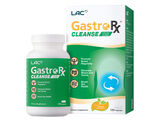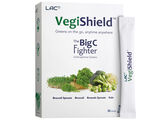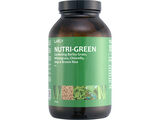How Green Are You?

Learn about the benefits of different vegetables and remind yourself about the importance of consuming sufficient greens!
How GREEN Are You?
We all know that consuming sufficient fruits and vegetables in our daily diet is essential towards maintaining good overall health. However, for most of us, this seems to be easier said than done. Based on a National Nutrition Survey conducted in 2010, the study found that 9 out of 10 Singaporeans do not consume enough fruits and vegetables.
Apart from not consuming sufficient quantities of fruits and vegetables, the quality and variety of fruits and vegetables that one consumes is just as important. As an easy rule of thumb, it is recommended that we eat as many “different colour” vegetables as possible. Vegetables that are red and purple provide powerful natural antioxidants, while dark green and leafy vegetables like spinach and kale, provide essential vitamins and minerals like vitamin A, C, E, potassium and folic acid.
Even though we know the basic benefits of eating vegetables, we somehow do not eat enough of what are good for us. This leads inevitably to lacks of nutrients for optimal health.
Personal preferences aside, our modern hectic lifestyle limits the amount of time to prepare home-cooked meals so we end up eating out for at least one, if not two meals a day.
It is not always easy to obtain healthy and wholesome green food dine-out options.
Here are some facts and tips to remind you to consume sufficient greens:
1. Know Your Recommended Daily Serving Of Vegs
According to Health Promotion Board, averagely we should consume at least 2 servings of vegetables (not forgetting 2 servings of fruits too!) daily. Unfortunately, potatoes and corn don’t quite count as vegetables. Due to their high starch content, potatoes and corn as classified under carbohydrate, so don’t try to munch on French fries and think that we are fulfilling our vegetables quota for the day!
2. Know The Size of a Vegetable Serving
If you think the vegetables in burger or economy rice meal meets the daily requirement, think again.
A 250ml cup of vegetables would usually represent 1 serving.
However, serving sizes also vary based on preparation method and the type of vegetable used.

3. Know Your Vegetables
Vegetables are important sources of many nutrients, including potassium, fibre and Vitamins A, E and C! Here’s a list of important nutrients and the vegetables to eat to get to those nutrients.
Here’s an easy tip for those who are on diet or looking to reduce some excess weight…
Most vegetables are naturally low in fat, calories and sodium, so you are able to munch away on them without worry. It is recommended that you consume vegetables and also fruits as substitute for high-calorie foods for better weight management. Having vegetables also makes you feel full due to their fiber content, thus curb overeating or snacking.
“But what if I really do not like eating vegetables or can’t manage to eat enough…?”
To avoid missing out on the essential nutrients present in greens, LAC offers a variety of GREEN supplements that is formulated to fill in nutrition gaps associated with insufficient greens in our daily diet.
LAC Colon Guard® contains Fructo-oligosaccharide (F.O.S) and Lactobacillus Complex which helps to suppress bad bacterial production and promote a healthy gastrointestinal tract with lower occurrences of bloating and constipation. Ingredients such as Psyllium Husk, Apple Pectin, Slippery Elm and Aloe are present to promote regular bowel movement and waste removal for more thorough colon cleansing.
Made from organically grown green barley leaves, LAC Green Barley is rich in naturally-occurring antioxidants and chlorophyll, beneficial for the immune system and help to maintain healthy blood pH level. Its highly concentrated juice powder of 33:1 (33g of green barley leaves yield 1g of green barley juice powder) is the purest available without containing other agents.











